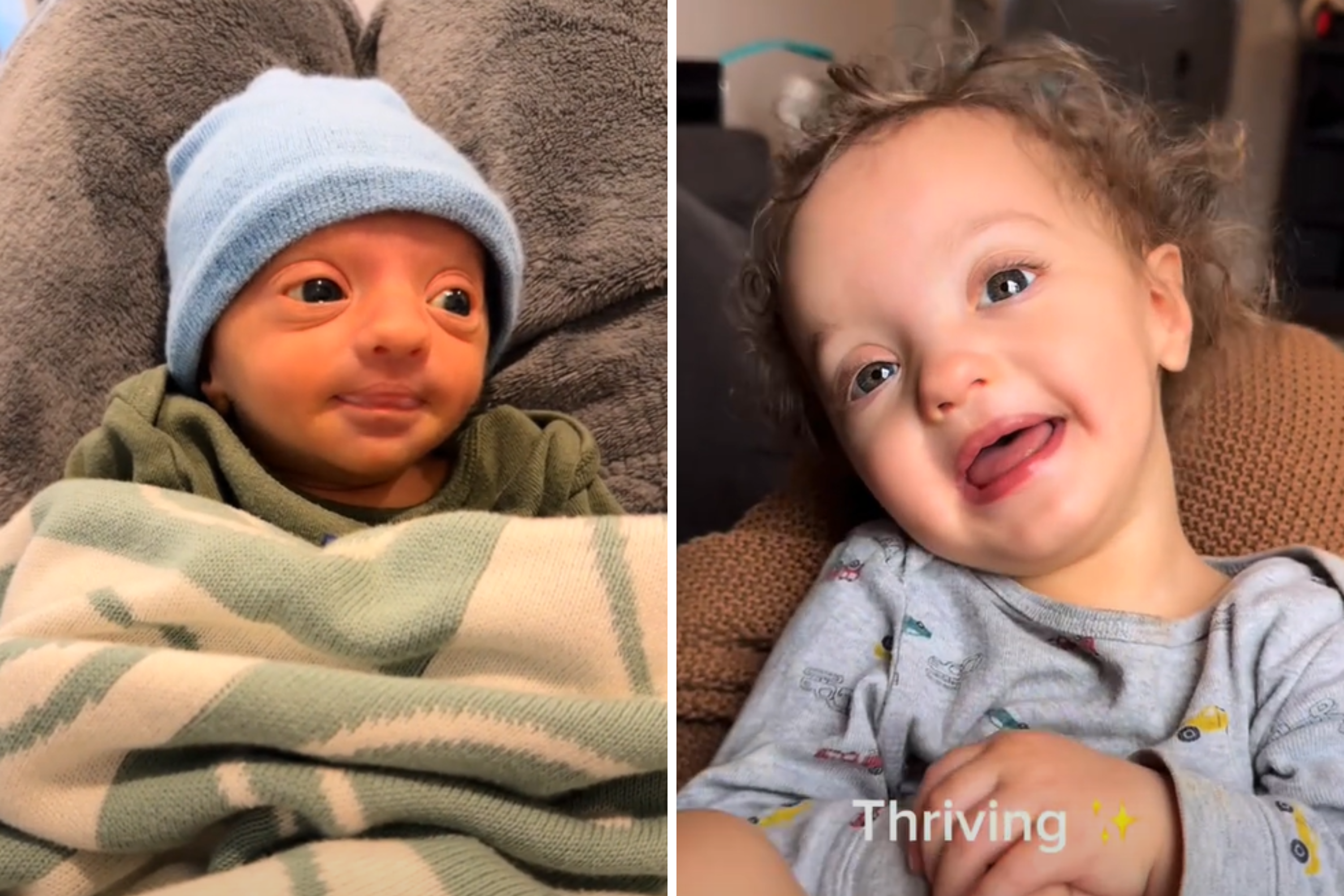
A mom from Indiana has shared an emotional glimpse into her son’s journey before and after his diagnosis with a rare condition.
Ledger Aemmer was born at 37 weeks, weighing just 4lbs, 11oz. Kaylee Aemmer, 26, told Newsweek that despite his tiny size, he was eating well and even avoided a stay in the NICU.
“We knew his kidneys were small… and weren’t fully developed, but we were going to handle that outpatient,” she said.
@keepingupwithledger_
However, although she and her husband Victor made conceivable efforts to help their baby gain weight, Ledger’s pediatrician grew concerned.
“[He] sent us to the local children’s hospital to get a feeding tube in his nose and get some tests ran,” Kaylee said. What followed was a whirlwind of appointments with nearly 10 different specialists, and after genetic testing, they finally had a diagnosis for Ledger: Wolf-Hirschhorn Syndrome (WHS).
WHS is a rare genetic disorder caused by the deletion of a segment of chromosome 4. This missing genetic material can result in various health and developmental issues.
Newsweek spoke to Carlos Jose Suarez, MD, MS, FCAP, vice chair of the CAP Genomic Medicine Committee, who said that WHS can affect babies in a number of ways.
“Many are born smaller and grow more slowly than expected. Reaching milestones—like sitting up, crawling, or walking—often takes longer, and they may have trouble feeding because of lower muscle tone,” he said.
The mom of two told Newsweek that the diagnosis came as a shock to the family. “Our whole world just changed with one phone call,” she said. “The main feelings were sadness and fear because doctors aren’t really familiar with WHS. We don’t know what his life is going to look like or how long we have with him.”
Yet, Ledger is defying odds. At 20 months old, Kaylee said that her son is thriving. Although he’s had several health scares along the way—like a seizure that lasted over an hour and required intubation—he’s made a remarkable recovery.
“Seizures are also common, and some babies are born with other medical concerns like heart defects or a cleft lip or palate,” Suarez added.
The family has gone from needing 10 doctors down to five, and Ledger is growing at a great rate according to the Wolf-Hirschhorn growth chart.
“He also does physical, occupational [and] developmental therapy weekly and he is about to add speech therapy,” Kaylee said. “He is almost independent sitting and getting stronger every day.”
Kaylee has documented Ledger’s progress in a clip on TikTok (@keepingupwithledger_) which has gone completely viral on the platform.
Amassing over 17 million views and 2.5 million likes, Kaylee told Newsweek the response has been overwhelmingly positive.
“Sharing him with the world was definitely scary because you never know how people are going to respond but everyone has fallen in love with him,” she said.
Suarez told Newsweek that with early intervention and the right support, children can make meaningful progress. “With good medical care and a strong support system, many children with WHS grow and learn in their own time, and families find real joy in their milestones, big and small,” he said.
Although his life is far different from what Kaylee imagined, she can’t imagine a world without him.
“I mourn the loss of the life I envisioned for him but simultaneously, I celebrate his resilience and the miracle he is,” she said. “This journey has taught me that even in the darkest moments, my love and devotion for him can prevail. I hope our story inspires others to find strength in their own struggles and to cherish the beauty in the unexpected.”
